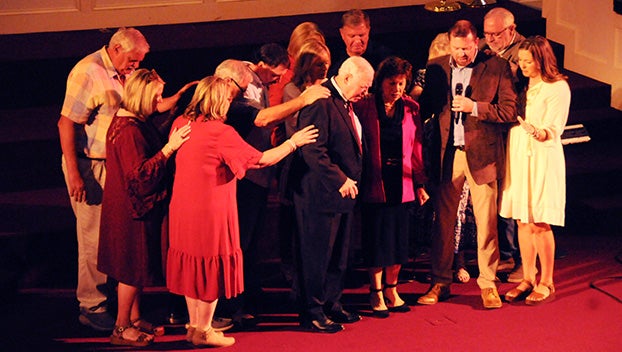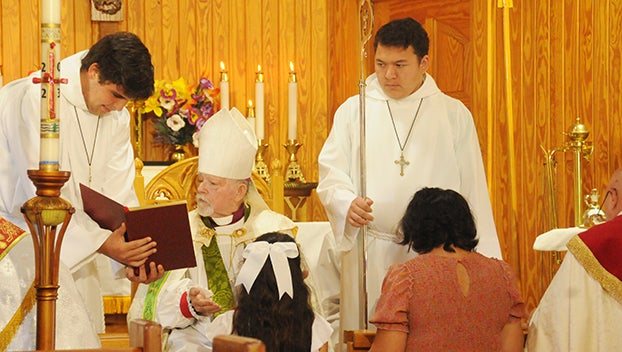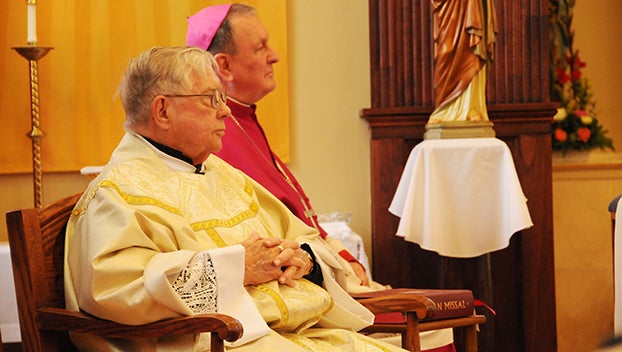How to handle church and state
Published 11:37 am Saturday, March 19, 2011
In his first letter to the novice pastor Timothy, as Paul is in the middle of instructing him about “church” things— how to handle false teachers in the church, prayer, proper attire, instructions for deacons and elders—he stops and addresses another topic—the Christian’s role as “citizen.”
It was an important issue— even from within the context of a “not-so-friendly” government. Even in that environment, good Christians— and good church members—should also be good citizens.
Here’s what Paul had to say. “I urge, then, first of all, that requests, prayers, intercession and thanksgiving be made for everyone— for kings and all those in authority, that we may live peaceful and quiet lives in all godliness and holiness. This is good, and pleases God our Savior, who wants all men to be saved and to come to a knowledge of the truth.” (1 Timothy 2:1-4, NIV).
Is there a Biblical connection between the church and state? Paul is addressing his remarks to people with “dual citizenship.” Christians— those who are in relationship with Jesus Christ— are citizens of two governments— a heavenly kingdom, and an earthly political reign. In this passage, Paul is making a connection between the two. Church and state! He is saying that God ordained government on earth for one supreme reason— government is to provide an environment “that we may live peaceful and quiet lives in all godliness and holiness”— that is, government should provide a climate where Christians— where God’s people— can live out their faith, and the ultimate result is of benefit to God’s government— to God’s kingdom. God “wants all men to be saved and to come to a knowledge of the truth.” That can best happen when earthly government honors the laws of God— when government officials make the “right” decisions rather than the “politically correct” decisions. The connection Paul is making is that government on earth— if properly led by godly people will benefit God’s kingdom.
Because of that, Paul gives important instruction to us. He says “that requests, prayers, intercession and thanksgiving be made for everyone— for kings and all those in authority.” He is saying that it is our Christian duty to pray for “everyone,” particularly, our political leaders.
This instruction is so important that Paul uses four different words for prayer— requests, prayers, intercession and thanksgiving.
“Requests” are our earnest needs— our wants— desires that are worth begging for. Sometimes our burden is so heavy that we make heartfelt “requests” to God. We plead with Him.
“Prayers” — speaks more of less personal words addressed to God. The root meaning is “out in the open.” Maybe this speaks of the kind of prayers that we pray in public. All prayers should be directed upward to God, not outward to man, but many, many times we are blessed— sometimes God even reveals Himself to us— through the prayers of others— spoken out loud in a group. Public prayers are important for three reasons— the prayer itself is a direct communication with God, it also leads others to pray and agree, and there is a blessing to the hearer.
We normally think of ”intercession” as praying on behalf of others, but the meaning of the original word is a “conference, an interview— a discussion.” There are those times when we go to God with such serious business— that it’s more than just a prayer whispered, or a scheduled prayer time— we have a conference— we have a discussion with God.
And “thanksgiving”—that’s the same word from which we get “Eucharist,” and it means words spoken to God with sincere thanks. We have so much to be thankful for.
Paul has let nothing fall through the cracks— anytime we go to God, he says— whether it’s with a burden that concerns us, or prayers spoken in front of others, or those serious discussions we have with God— or those times when we get alone with God and thank and praise Him— Paul instructs us to do the same— the New Living Translation says “Pray this way,” for “kings and all others who are in authority.”
The purpose of the specific request, Paul also makes known— “that we may live peaceful and quiet lives in all godliness and holiness.” We live in a great country— we live in a great city— but there are still things going on that are ungodly and unholy. We are to pray “for” our political leaders— but you and I know that there are some things we should pray “against.” Anything that prevents or jeopardizes our ability to live— and to raise our children in “all godliness and holiness”— we need to pray “against,” knowing that God may call us beyond praying— and into action.
Christian, we have a biblical mandate that our praying extend to those who have authority over us—our governmental leaders—whether we agree with them or not. Let’s be obedient to Paul’s instructions. Christians, while we are kingdom citizens first and foremost — let’s not fail pray for those who lead us here.
Arnold Hendrix
First Baptist Church
www.fbcatmore.org




